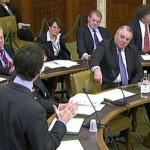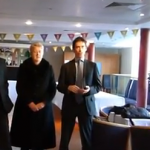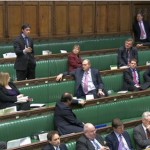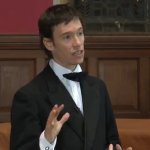Why should a policy-maker study history? After all, the more you examine history, the more bewildered you become. Even for the few periods for which records survive, what we know confuses us. Our forefathers believed in things, which we struggle to understand. They died for countries like the Kingdom of Cumbria, which have now vanished, or out of loyalty to Kings, whose very names are now lost. In the twentieth century, neighbours killed for theories of race, which abhor us, and theories of communism, which seem entirely implausible. Our ancestors oppressed, enslaved, and ignored. Given the transformations in our economies, in technology, what can we learn from them? What relevance does a frock-coated Prime Minister Gladstone have to modern Britain, still less Cicero?
Which is perhaps why policy-makers often pay little attention to history. They focus on economics with its equations, and graphs, its statistics, and its ‘rational model’ of behaviour (see the PPE degrees that proliferate in Parliament). Or they read management theory with its universal rules for ‘global markets’. For international policy work, they invoke the principles of ‘counter-insurgency doctrine’, and, for the time after war, the Rand Corporation’s ‘Beginner’s Guide to Nationbuilding.’ Such universal global models, their numbers, and their ‘objectivity’ give governments an illusion of power. They imply that all problems are the same, and that solutions are always available. And in some circumstances such theories can be useful: they can and have delivered better health care, better railways, and stable currencies.
But the theories and jargon of social and political ‘science’ can also be ineffective and dangerous. Since they are, by their nature, universal ‘global’ theories, applicable anywhere, they do not leave room for the particulars of culture, psychology, or beliefs. They make it difficult for policy-makers to identify what is valuable in an existing historical situation, or institution. And this is one of the reasons why they continue to fail in many fields. The theories behind ‘the war on drugs’ have encouraged us to spend billions over decades, with very limited and often disturbing results. Theories of economic management have proved particularly flimsy (who now supports price and incomes policy, or the exchange controls which seemed so necessary in the 1970s? Who now thinks the British approach to financial regulation in the 2000s was correct?). In Cumbria, scientists convinced us to spend millions and decades draining a precious peat habitat for forestry and now convince us to spend millions reiflooding parts of it. Criminologists take bobbies off the beat, and then put them back as community support officers. Planning experts destroy historic market towns. Other theories are responsible for the removal of matrons from hospitals, and British history from schools.
Again and again, the most senior figures in government, proud of their research, wisdom and analytical ability, with power, resources, staff, and highly-developed theories, have launched initiatives which were unnecessary. They imagined they understood situations. They ignored what was healthy, and vigorous about the existing situation. They thought they were addressing an urgent problem, when it was less serious, and less urgent, than they imagined. They believed they had a better alternative, when they didn’t. And forgot their mistakes almost as soon as they had made them.
Which brings us to history. Since becoming a politician, I have had the opportunity to read the Hansard records of previous parliamentary debates. I have seen how brilliant people made elegant, seductive arguments in defence of slavery, or the subjection of women, racism, or the criminalisation of homosexuality. I have read Palmerston saying in 1842 that withdrawal from Afghanistan was unthinkable and ‘would bring a blush to the cheek of every Englishman’. I have seen how Aneurin Bevan justified the destruction of community hospitals, with the line ‘I would rather be kept alive in the efficient if cold altruism of a large hospital, than expire in a gush of warm sympathy in a small one”. And I have re-read the headlines that bullied politicians into supporting Franco, the magazines that over-rated Macmillan or Wilson, and the newspapers that failed to hold generals and politicians accountable for the Boer War.
Perhaps the most striking ‘lesson’ has been how unpopular celebrated people were in their time. Churchill was hated by much of the press, the country, and his own party: when he begged for just fifty to join him in the lobbies calling for rearmament, in 1938, only 3 defied the whips to do so. Gladstone was right to push for Home Rule in Ireland, but destroyed his party, and was vilified, for his attempt. Peel was right about the Corn Laws, about Catholic emancipation, and about foreign policy, but everyone disliked him. They loved Palmerston, who was wrong about everything. Politics is, in part, an art, by which an individual attempts to shape, and be shaped by the imaginations of a particular community, in a particular place, with a particular culture, at a particular time. Its field is human contact, human pride, and human fears. Politicians are prone to paranoia and megalomania, to amnesia, to irresponsibility. These are not things which can be overcome through economics, through political science, and central plans. Perhaps they can never be overcome. But they are things which are best understood, and in some measure addressed, through a knowledge of history.








